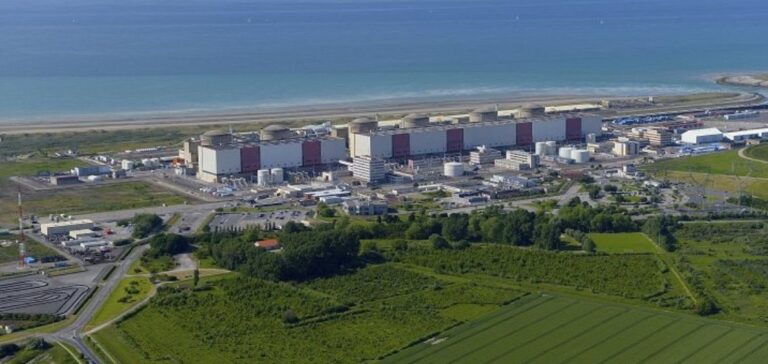The public debate on the construction of two new EPR nuclear reactors at Gravelines opens against a backdrop of a reassessment of energy priorities in France.
From September 17 to January 17, the French National Commission for Public Debate (CNDP) is organizing consultations to gather the opinions of stakeholders.
The project is part of the government’s drive to revitalize nuclear power, with plans to build six new-generation reactors to boost low-carbon electricity production capacity.
Gravelines, already home to six 900 MW reactors, has been selected to host two additional 1,600 MW reactors.
The challenges of this project are many: ensuring security of energy supply, maintaining industrial competitiveness and meeting France’s climate commitments.
Debates will be held in several cities, including Dunkirk and Calais, and online, with the participation of various players from the energy sector and civil society.
Economic and technical challenges of the EPR2 project
Topics of discussion include the technical design of EPR2 reactors, investment costs, nuclear safety, and the impact on employment and the local environment.
Delays and cost overruns on the Flamanville EPR project, which recently started its nuclear reaction after years of technical difficulties, are fuelling discussions on the economic viability of this technology.
The CNDP intends to discuss the financial and technical risks associated with the EPR2 to better inform the public and decision-makers.
The management of nuclear waste, radioactivity and environmental risks will also be central issues.
These complex technical issues, although mastered by the players in the sector, require clear communication to prevent any risk of rejection of the project by local populations.
Transparency and access to information are key to building stakeholder confidence.
Local impact and outlook for the Hauts-de-France region
The Gravelines project is seen as an opportunity to boost the economy of the Hauts-de-France region, which is facing a number of industrial challenges.
The construction of the reactors could generate several thousand direct and indirect jobs, both in the construction and operating phases.
However, the economic benefits must be weighed against the colossal investments required and the technical uncertainties.
Local authorities and some business representatives are in favor, arguing that the installation of these reactors could strengthen the region’s position as a major energy hub in Europe.
However, critics point to the need to objectively assess the costs and benefits of the investment, avoiding optimistic extrapolations based on previous projects that have met with setbacks.
France’s energy choices
The debate over the Gravelines reactors goes beyond regional and national borders, touching on the fundamental choices of French energy policy.
In a European context marked by tensions over energy supply and pressure to reduce greenhouse gas emissions, nuclear power is seen by some as an unavoidable solution.
For others, the question arises of diversifying energy sources, with a more cautious view of the additional costs and delays associated with EPR reactors.
The consultation conducted by the CNDP is an exercise in participatory democracy, designed to better identify the expectations and concerns of the players involved, from the energy sector to local residents.
The aim is to enable informed decision-making, based on a rigorous assessment of the economic, technical and environmental impacts.






















